Sociology > DISCUSSION POST > SOCS 350 Week 1 Discussion 1 - You eat what? Ethnocentrism (All)
SOCS 350 Week 1 Discussion 1 - You eat what? Ethnocentrism
Document Content and Description Below
SOCS 350 Week 1 Discussion 1 - You eat what? Ethnocentrism Ethnocentrism is generally defined as viewing one's own culture as superior to all others. However, quite often, it is not quite that obvi... ous. Whenever we encounter something that seems strange or different, we will feel some degree of discomfort. How we respond to that Feeling is a gauge of how ethnocentric we are about it. Let's suppose that you are entertaining a business client From ²rance. You take him to a very fine restaurant where he looks over the menu very carefully, then asks the waiter if he or she, by chance, has a cheval available. The waiter shakes his head and explains that it is not served in American restaurants. Your client becomes somewhat upset and tells you that a truly fine restaurant would serve "proper" cuisine and that he was very disappointed with American hospitality so Far. He eventually settles For the prime rib but is ill-tempered For the rest of the evening. The next morning, he leaves For ²rance without consummating the expected business deal. Your boss asks you what happened, and you explain that the client was upset because the restaurant didn't serve something called cheval……………….. My post Let's start by defining Ethnocentrism Laura Baisch Email this Author 1/5/2015 3:59:57 PM As a healthcare professional in the hospital setting, many patients are cared for from different cultural/ethnic backgrounds. One instance of ethnocentrism that comes to mind is that of an Orthodox Jewish patient. When report was received about this patient, it was brought up that the patient did not shave under her arms and smelled very strongly of body odor. The question was asked by the nurse, "Do they not believe in bathing regularly?" Fortunately, there was not a negative outcome. The patient was encouraged to take a bath, which she did. Although the nurse's question regarding bathing may have been harmless to her, the thought that "they" don't bathe regularly possibly came from the thought that this patient's culture is inferior to the nurse's because the nurse thought since the patient does not shave under her arms, the nurse is cleaner than the patient. As a healthcare professional, it is imperative that we are accepting of other cultures, race/ethnic backgrounds, and orientations. We must go beyond the Caring theory developed by F. Neil Brady which is "universal care: love for humanity," and incorporate all three theories. The deontological (faith) or "universal duty: universal principle" as well as teleological (hope) or "universal ends: character ethic, utilitarianism, other-isms." (Harvey and Allard 2012) By incorporating all theories, not only will the patient be cared for, the patient will be treated as we would want to be treated and the greatest good will be done for the greatest number of people. (Harvey and Allard 2012) Harvey, C. & Allard, J. M. (2012). Understanding and Managing Diversity: Readings, Cases, and Exercises, Fifth Edition. Boston, MA: Prentice Hall. Question being ask Thoughtful response and interesting example Laura! Does your workplace offer or require cultural awareness or diversity classes at all? If not, do you think a class like that would be helpful and should be required? Respond to the question Unfortunately no, our workplace does not offer any classes on diversity or cultural awareness. I think it would be very beneficial to have such classes and yes, they would need to be required, otherwise many people would not attend. Simply because I've noticed that if people don't have to do something, the majority won't. Later the week open post Adapting to Something New - How Have you Done? Bernardita, Aren't you glad you didn't give up?! Sushi rolls and sashimi are in the top five of my favorite foods. I am very fortunate to have a husband who loves a challenge as much as I do. Growing up in the secluded mountains of Tennessee, I have come to appreciate foods from different cultures. We will try basically anything that is presented to us. I say basically, because once in Mexico, we were presented with cow's tongue. He was brave enough to try it, I on the other hand was not willing to step outside of my comfort zone. I have tried for years to encourage my mother to try sushi, and unfortunately she has never been able to step outside of her comfort zone either. I did recently introduce her to Thai cuisine and she loved it. If she continues to be open to trying new things, there may be hope for sushi. 3rd post Negative Opinions of a Friend? Funny that you ask that question. Just yesterday, I was discussing this class with my uncle. I was telling him the things we were talking about in class and he asked, "What is ethnocentrism?" He is very intellectual, so I questioned him back, "You really don't know what ethnocentrism is?" I then proceeded to tell him just what we've discussed in class. That ethnocentrism is the thought that your culture is superior to that of another's. His response was not one I expected. He began to say, "So you mean to tell me, I have to accept all cultures? Even when people come over here to our country and haven't taken this class. They're not very accepting of our culture and think we should all become like them." He didn't move much in his thinking when I continued to discuss this with him. It can be difficult to talk with family or friends regarding the issues of ethics and ethnocentrism, especially when they are older and set in their ways. As the case with my uncle. I feel that many older Americans want to see today's society respect and love our country the way they felt it when they were younger. And they feel that when we are accepting of other cultures, we are not being as patriotic. [Show More]
Last updated: 1 year ago
Preview 1 out of 4 pages
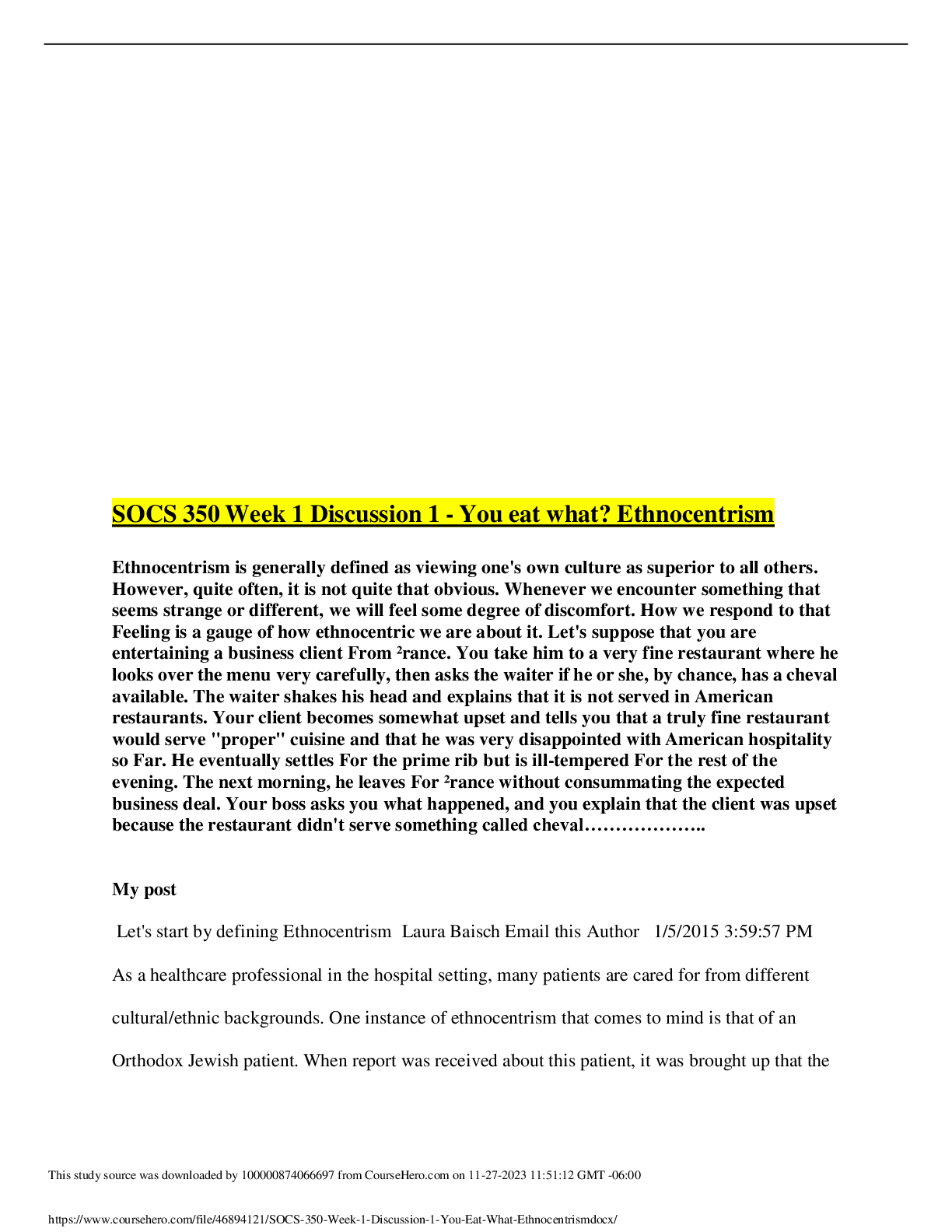
Buy this document to get the full access instantly
Instant Download Access after purchase
Buy NowInstant download
We Accept:

Reviews( 0 )
$9.50
Can't find what you want? Try our AI powered Search
Document information
Connected school, study & course
About the document
Uploaded On
Nov 27, 2023
Number of pages
4
Written in
Additional information
This document has been written for:
Uploaded
Nov 27, 2023
Downloads
0
Views
148


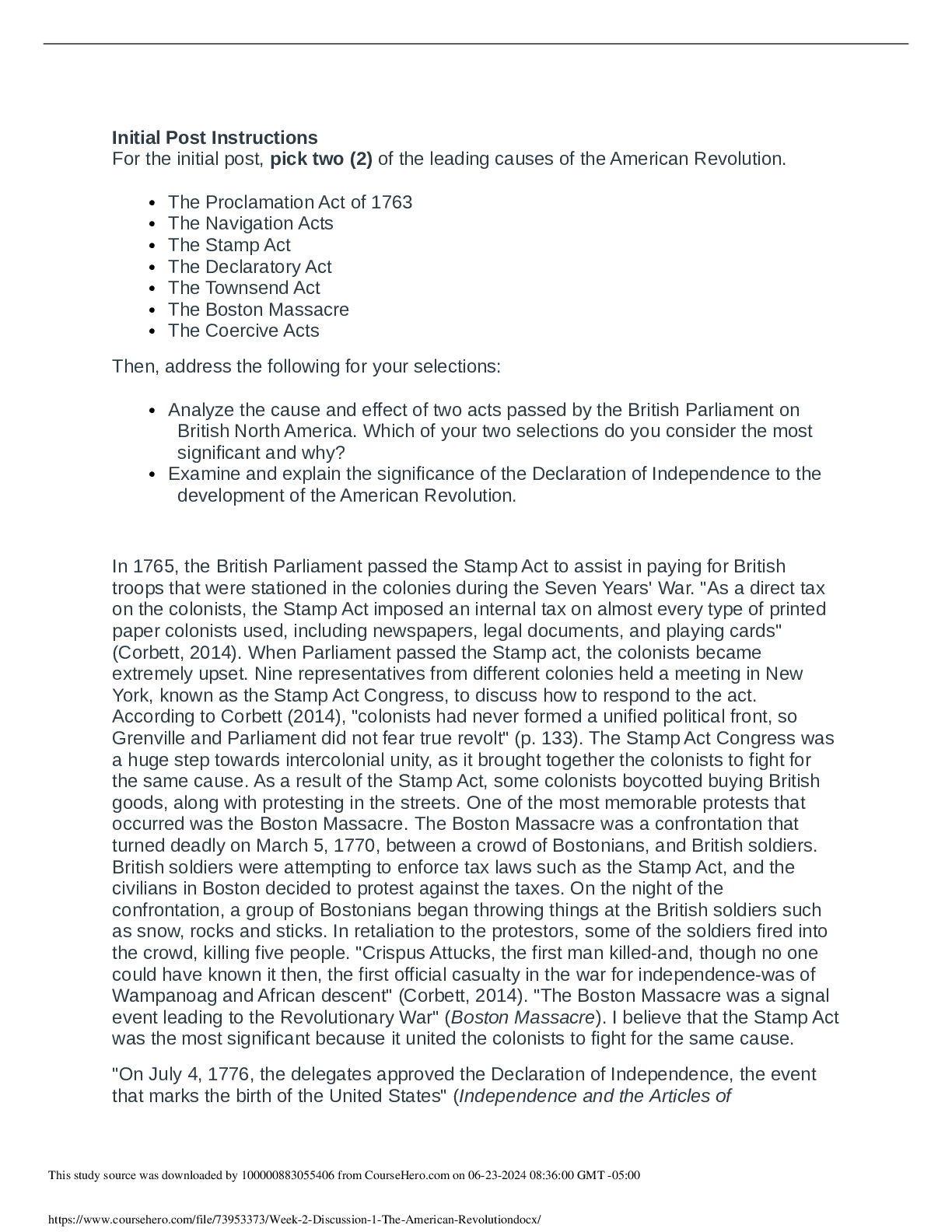
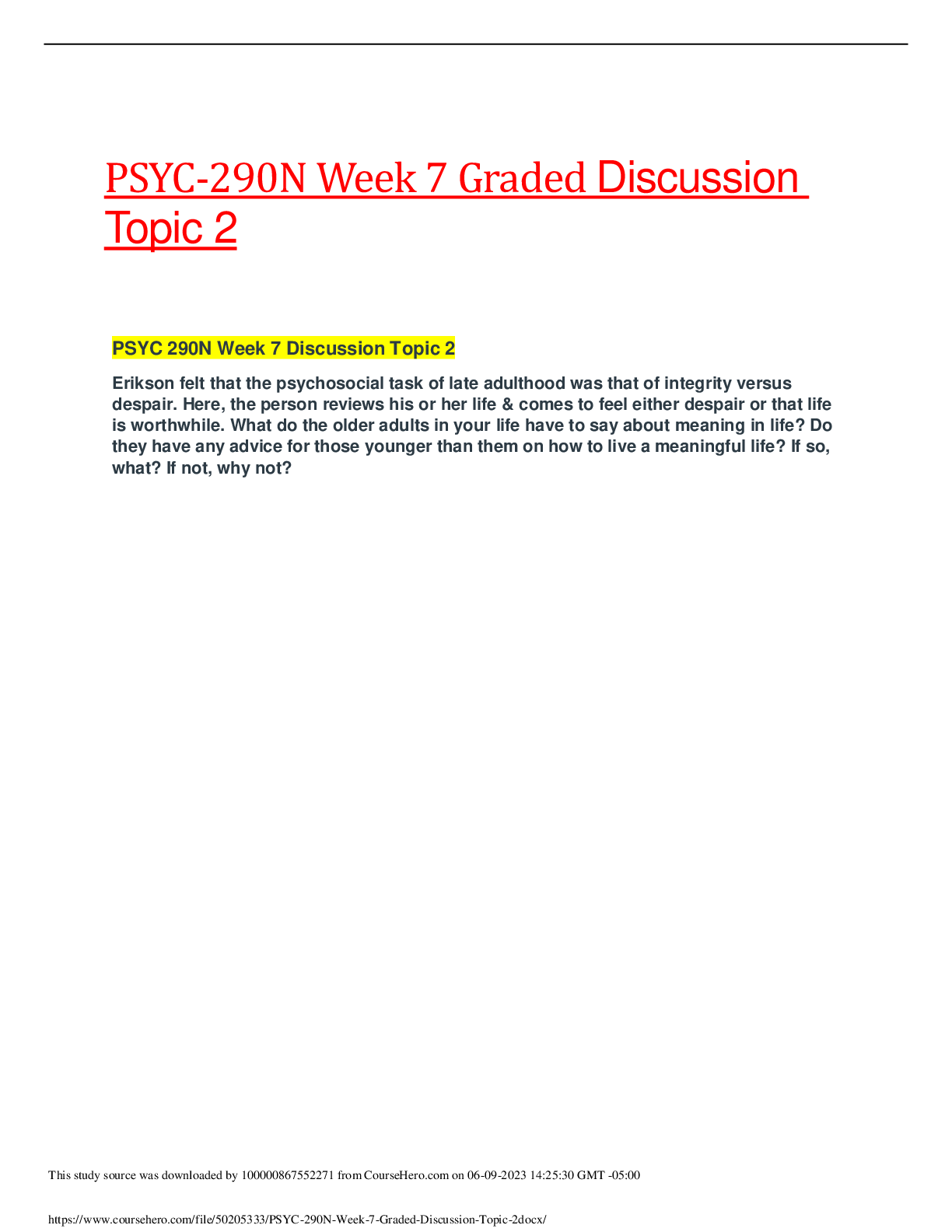
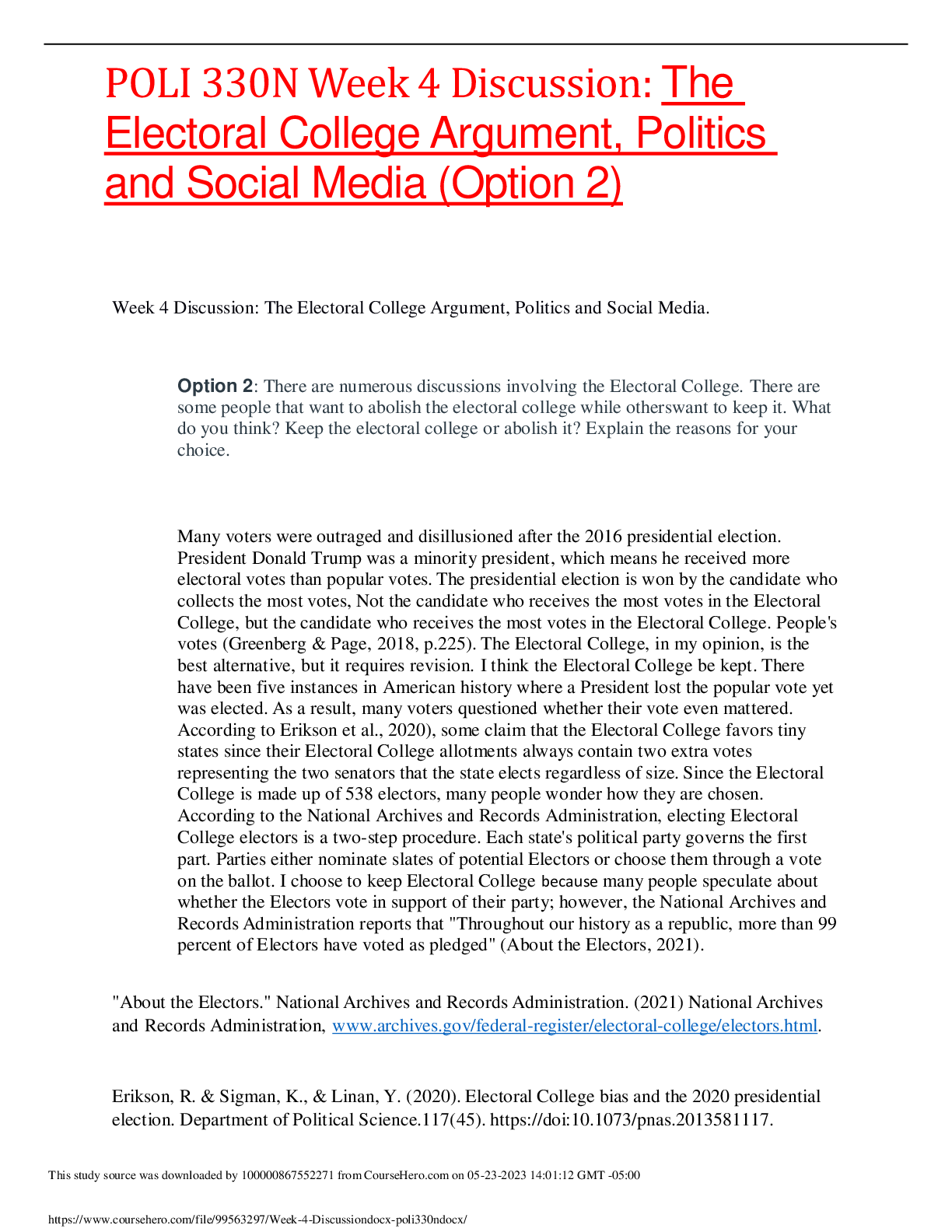

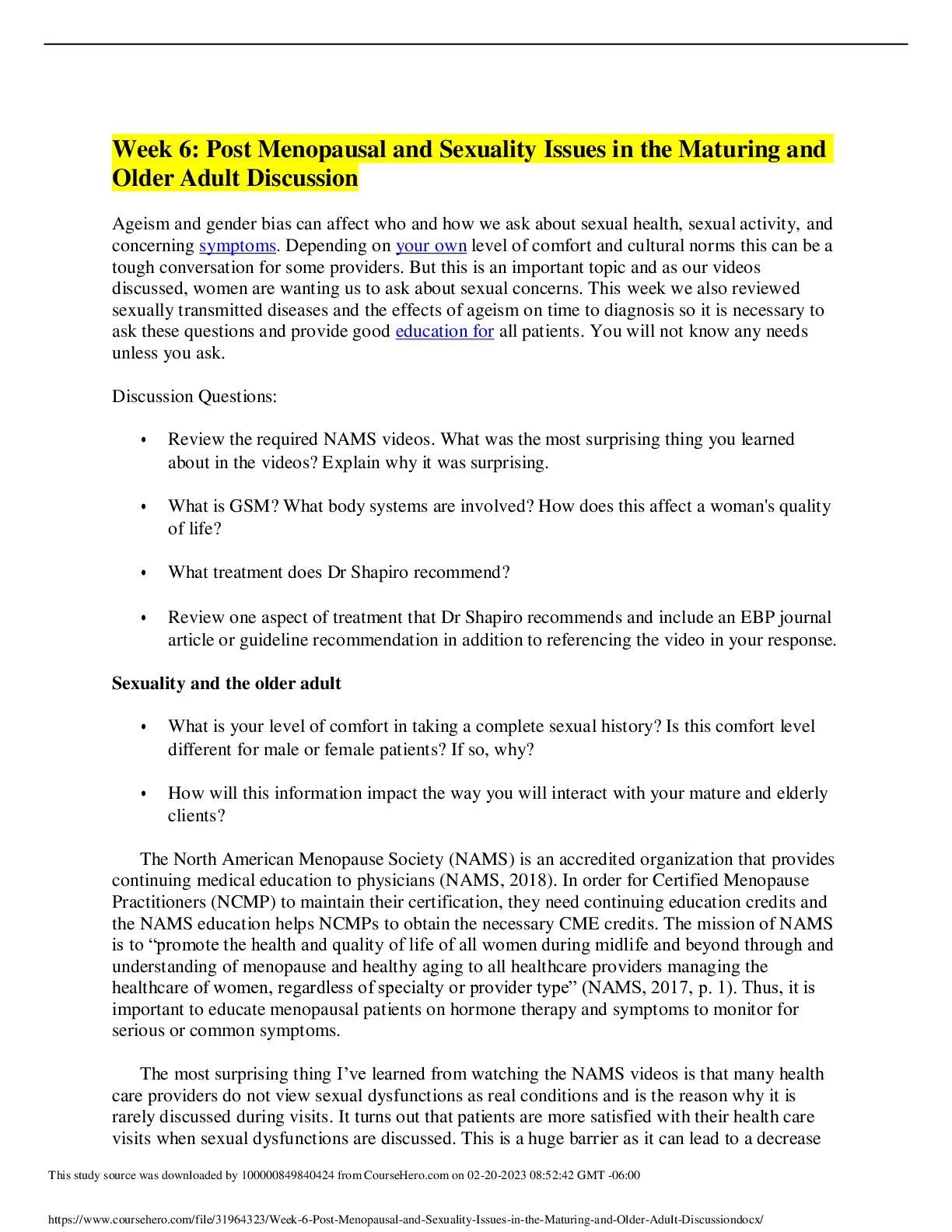
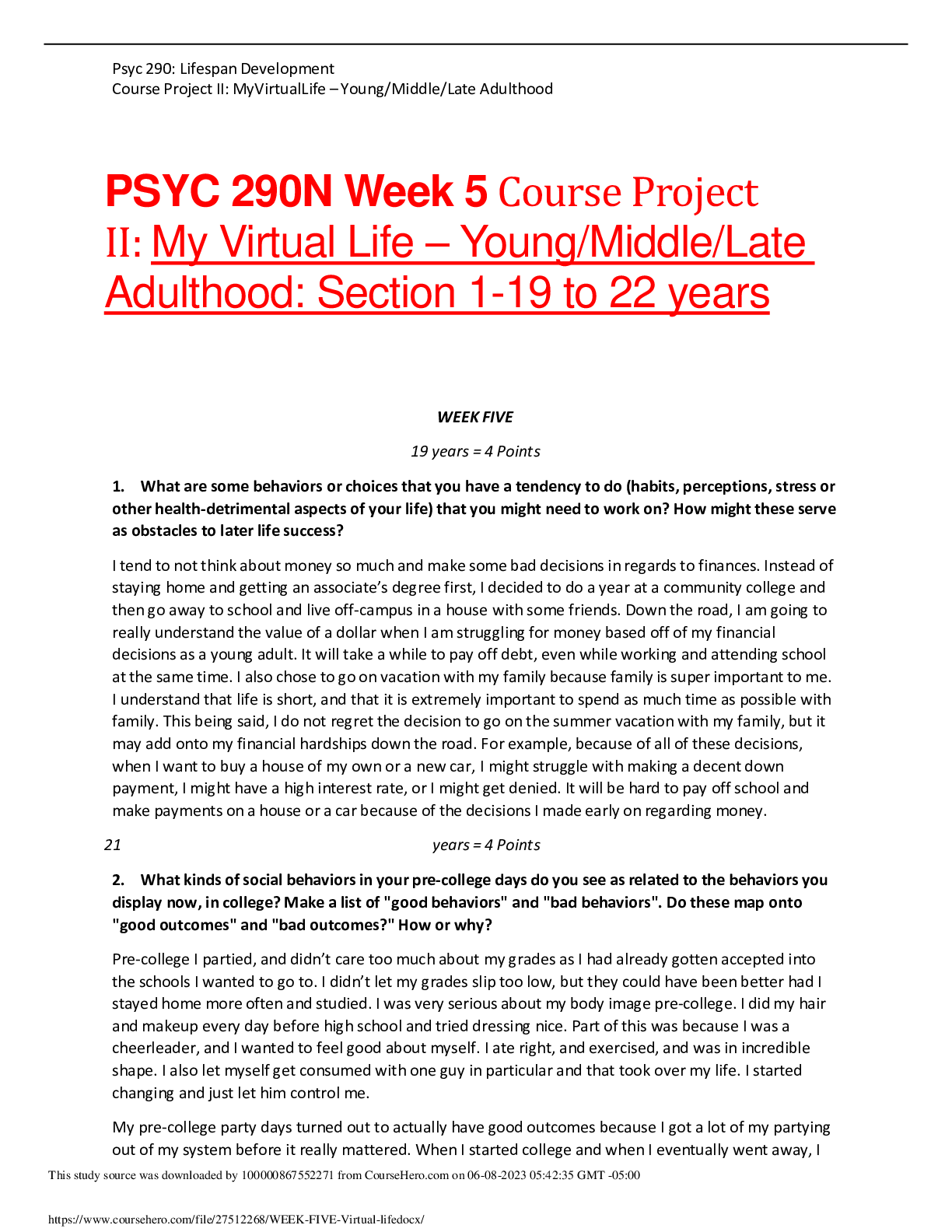
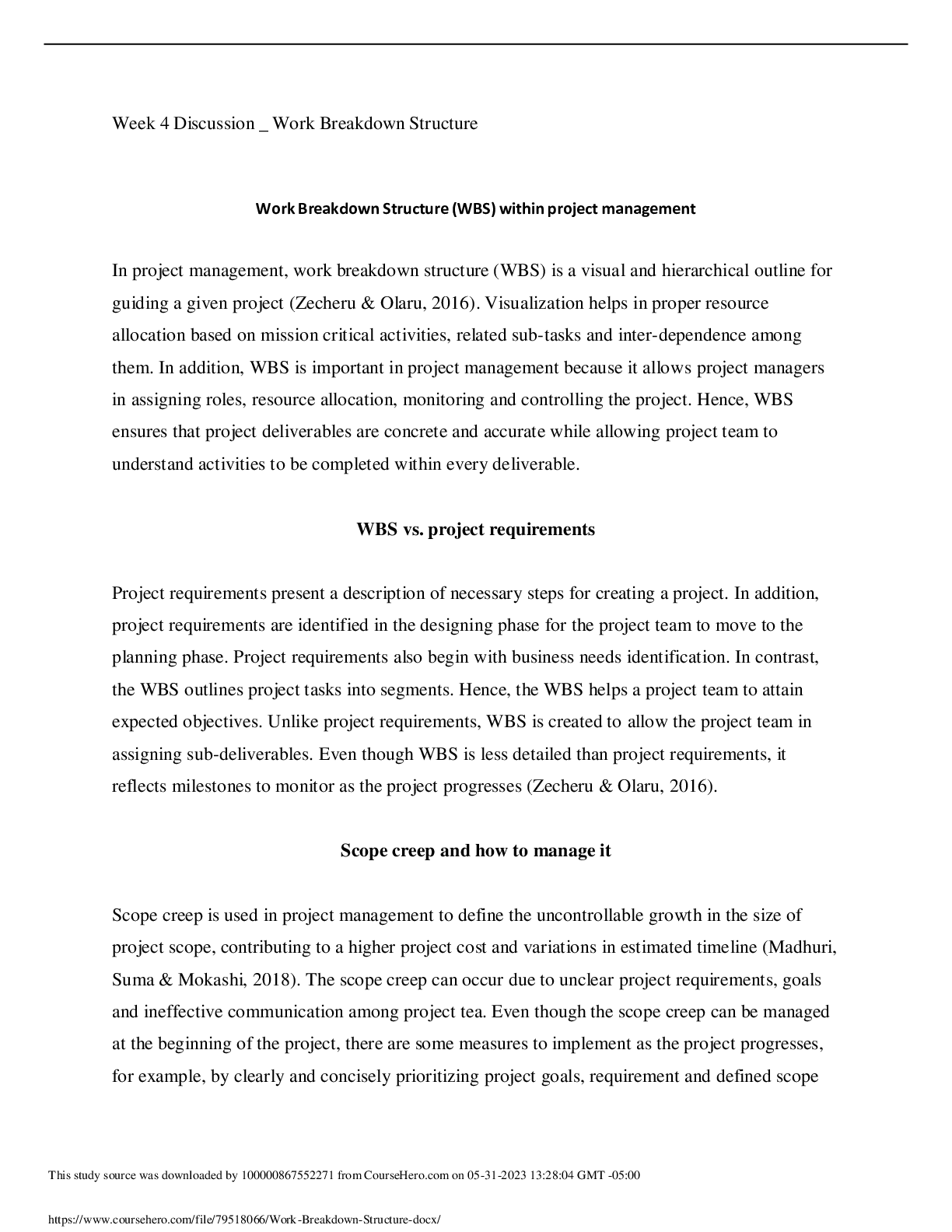
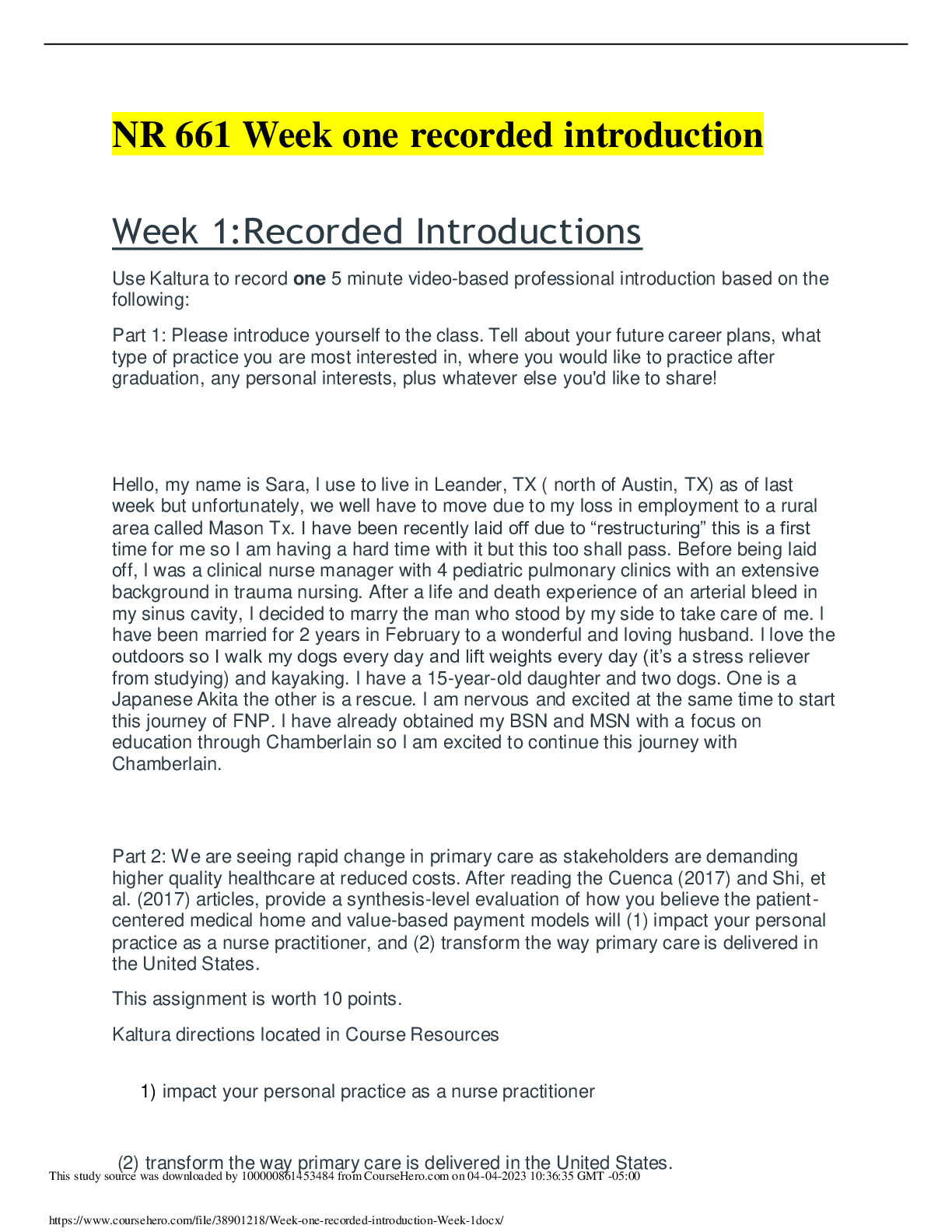



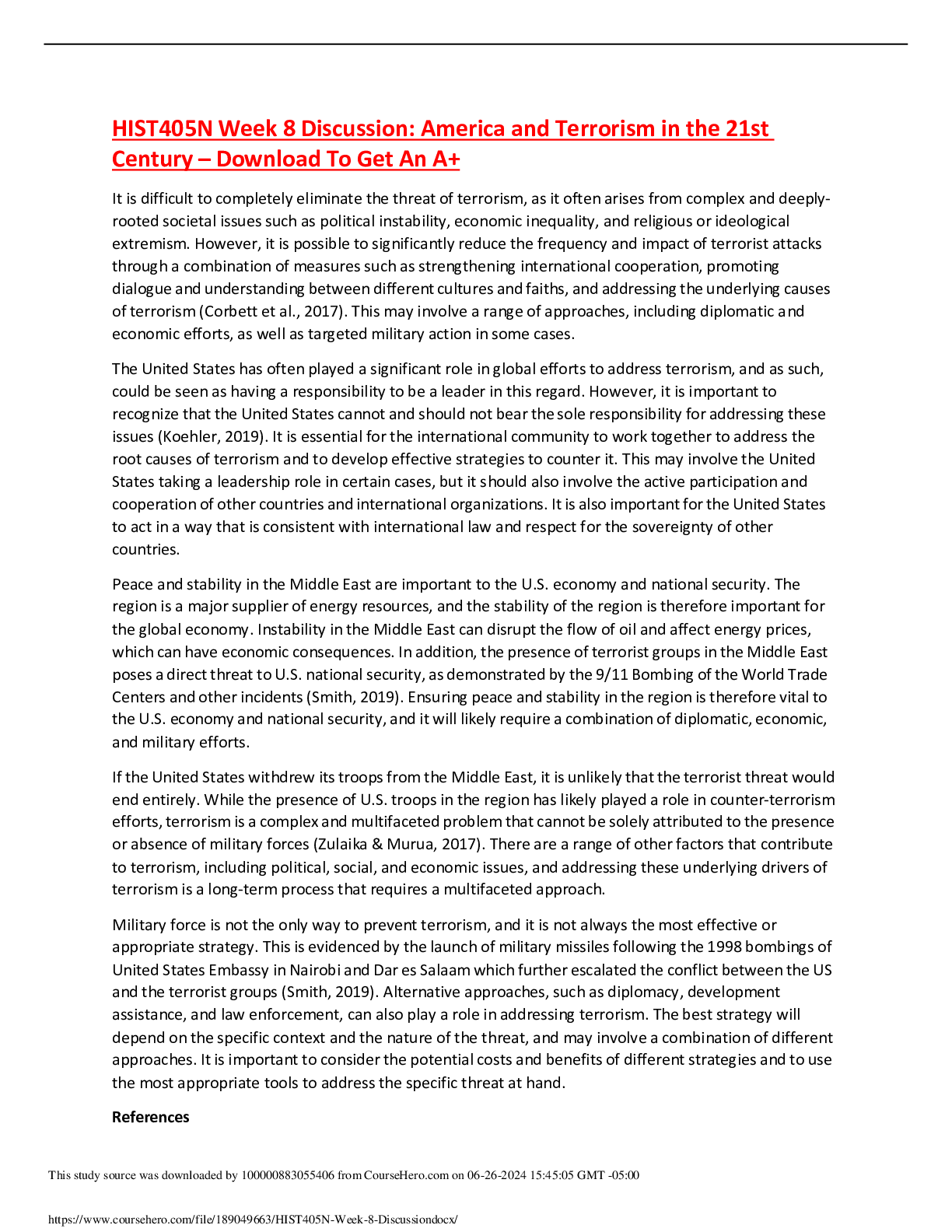




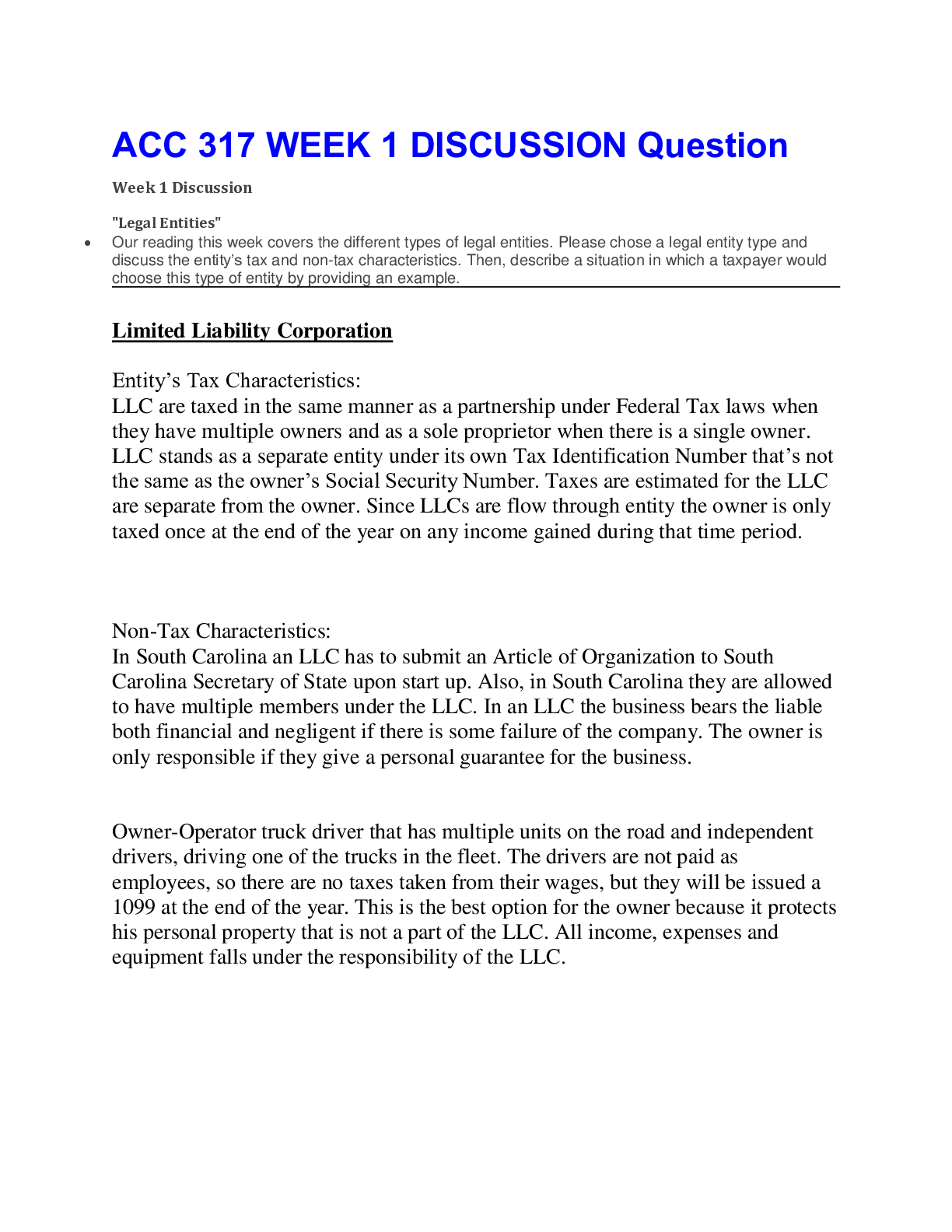



 – South Carolina State University.png)



